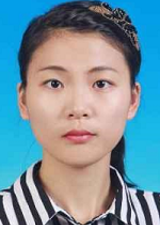The Principles of Biostatistics training is offered by One Health at UCalgary in collaboration with the University of Calgary Biostatistics Center.
This training is comprised of two sections:
Section 1: Fundamentals of Biostatistics, will serve as a fundamental foundation for participants to understand the basic concepts of biostatistics with a focus on statistical testing in research studies.
Section 2: Applied Statistical Modelling for Data Analysis in R, will cover basics of applied statistical modelling.
Courses can be taken separately or together.
Training Overview
Dates:
Section 1: May 8 - 19, 2023 (excluding weekends), 1:00-4:00 PM (MDT) | 30 hours: 15 hours lecture + 15 hours lab (non-credit)
Section 2: May 23 - June 2, 2023 (excluding weekends), 1:00-4:00 PM (MDT) | 27 hours: 13.5 hours lecture + 13.5 hours lab (non-credit)
Format: Virtual (Zoom)
Cost: $300 CAD + tax for each section
Audience: Open to domestic and international students (undergraduate, graduate, and post-doctoral fellows), professionals and adult learners interested in Biostatistics.
In support and recognition of the University of Calgary's Indigenous Strategy, ii’ taa’poh’to’p, two spots are available for Indigenous students in Canada free of charge. Please contact us at onehealth@ucalgary.ca for more information.
Eligibility: Background knowledge in Fundamental Statistics is highly recommended to understand the topics thoroughly, especially for those who plan to sign up for section 2 only. Ability to understand and communicate in English is required.
Certificate: Students must attend 70% of the sessions in order to receive the electronic certificate of participation.
Required Software: R and RStudio software (free to download)
Refund Policy: Participants must submit an email notice to onehealth@ucalgary.ca at least 7 business days before the start date of each section. There will be $15 administration fee deducted.
Deadline to register: Section 1: May 4, 2023 at 8 AM (MDT) | Section 2: May 18, 2023 at 8 AM (MDT)
Topics
Module 1: Introduction to Statistics
- Data collection and sampling methods
- Data classification and presentation
- Measure of central tendency and variability
Module 2: Statistical Inference
- Tests/confidence intervals for one group
- Tests/confidence intervals for two group comparisons
- Test for multiple group comparisons (ANOVA) and post-hoc tests
- Chi-square tests
Module 3: Introduction to Statistical Modelling with R
- Simple linear regression
Module 4: Applied Statistical Modeling with R
- Multiple Linear Regression Model Building (First order model/Model with interaction/Higher order model) for quantitative and qualitative independent variables
- Estimation and Interpretation of the model parameters
- Significance Testing (Full model test /Partial test)
- Model Selections (Stepwise/Backward/Forward Procedure)
- Model Diagnostics (Linearity/Independence/Normality/Homoscedasticity/Outliers)
- Model Transformation (Box Cox Transformation)
- Model Prediction
Learning Outcomes
At the end of this section, participants will be able to:
- Apply the basic principles of biostatistics to summarize and draw conclusions from data.
-
Formulate testable research questions, evaluate the suitability of different research designs, plan a well-designed experiment or clinical trial, choose an appropriate statistical test and present results in a scientific and comprehensible manner.
-
Implement R-software and analyze statistical results for biomedical and veterinary data.
At the end of this section, participants will be able to:
- Model the multiple linear relationship between a response variable (Y) and all explanatory variables (both categorical and numerical variables) with interaction terms. Interpret model parameter estimates, construct confidence intervals for regression coefficients, evaluate model fits, visualize correlations between a response variable (Y) and all explanatory variables (X) by graphs (scatter plot, residual plot) to assess model validity.
- Predict the response variable at a certain level of the explanatory variables, once the fit model exists.
- Implement R-software and analyze statistical results for biomedical and veterinary data.
Assessment
Assignments will be posted on Slack (our communication tool with students).
Students must attend 70% of the sessions in order to receive the certificate and are encouraged to work on the assignments progressively throughout the course as the relevant material is covered.
Assignments will be posted on Slack (our communication tool with students).
Students must attend 70% of the sessions in order to receive the certificate and are encouraged to work on the assignments progressively throughout the course as the relevant material is covered.
It is, in my opinion, one of the best courses available to medical students. It can definitely help to grasp what is going on behind these approaches, as they are conducted by instructors who majored in statistics.
Biostatistics 2022 Participant
Instructors


Qing (Leah) Li, PhD Candidate
Section 2 Instructor
University of Calgary
Questions?
If you have any questions or need assistance regarding the Principles of Biostatistics training, please contact us at onehealth@ucalgary.ca and we will assist you as soon as we can.
Thank you!
How can you support this training?
We are seeking donors to provide money for student scholarships. If you are interested in donating please contact:
Dr. Herman Barkema, Director OH@UC
Phone: 403.826.9846
Email: barkema@ucalgary.ca


